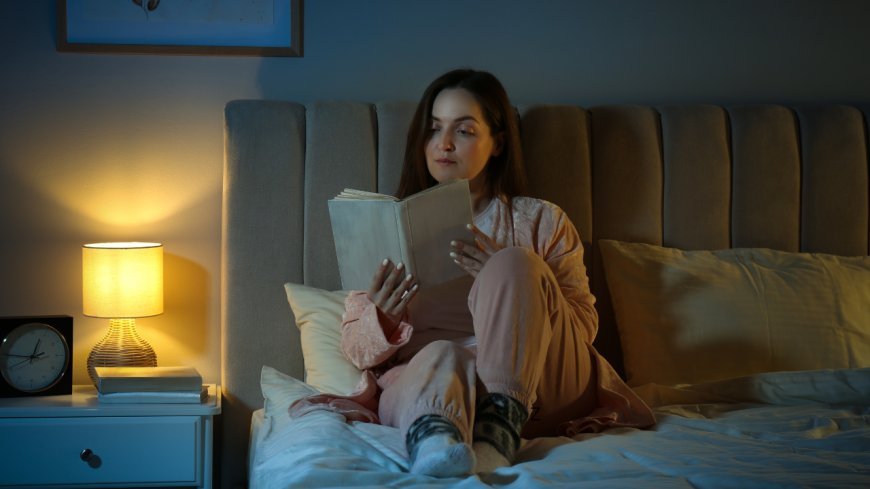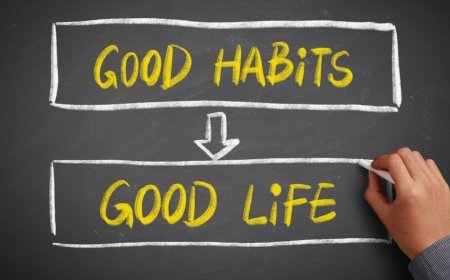How to Create a Relaxing Evening Routine for Better Sleep
Design a personalized evening routine that signals your body to prepare for restful, restorative sleep.

A consistent evening routine is one of the most effective ways to improve sleep quality. Here's how to create a personalized routine that helps you unwind and sleep better.
Why Evening Routines Work
Your body thrives on predictable patterns. A consistent evening routine signals your nervous system to begin the transition from daytime alertness to nighttime rest.
Research shows people with evening routines fall asleep 37% faster and experience better sleep quality than those without routines.
The 90-Minute Wind-Down
Start your routine 90 minutes before desired bedtime. This matches your body's natural sleep cycle and allows enough time for stress hormones to decrease.
Hour 1 (90 minutes before bed): Finish eating, dim lights, and begin transitioning away from stimulating activities Hour 2 (60 minutes before bed): Personal care, gentle stretching, reading, or journaling Final 30 minutes: Relaxation techniques, deep breathing, or meditation
Essential Evening Routine Elements
Digital sunset: Stop using phones, computers, and TVs 1 hour before bed. Blue light suppresses melatonin production.
Alternative activities: Reading physical books, gentle stretching, journaling, puzzles, or listening to calming music.
Temperature control: Keep bedroom between 65-68°F. Take a warm bath or shower 1-2 hours before bed - the cooling effect afterward promotes sleepiness.
Calming Activities That Work
Progressive muscle relaxation: Tense and release each muscle group from toes to head, holding tension for 5 seconds before releasing.
Gratitude journaling: Write 3 things you're grateful for. This shifts focus away from stress and toward positive thoughts.
Gentle yoga or stretching: 10-15 minutes of easy poses help release physical tension from the day.
Reading fiction: Engaging stories help quiet mental chatter better than non-fiction or work-related material.
Creating Your Sleep Environment
Darkness: Use blackout curtains or eye masks. Even small amounts of light can disrupt sleep quality.
Sound control: Use earplugs, white noise machines, or fans to mask disruptive sounds.
Comfort optimization: Invest in comfortable pillows and bedding. Your sleep environment should feel like a retreat.
Natural Sleep Aids
Herbal teas: Chamomile, passionflower, or valerian root tea can promote relaxation. Start drinking 1 hour before bed.
Magnesium: 200-400mg of magnesium glycinate 1 hour before bed can help with muscle relaxation and sleep quality.
Essential oils: Lavender, bergamot, or cedarwood in a diffuser or applied topically (diluted) can promote relaxation.
Timing Your Evening Meals
Finish eating 2-3 hours before bedtime to allow digestion. Large or spicy meals too close to bedtime can disrupt sleep.
If hungry before bed: small portions of foods containing tryptophan (turkey, milk, bananas) or complex carbs (oatmeal, whole grain toast).
Handling Evening Worries
Worry journal: Write down concerns and potential solutions. This helps clear your mind and prevents rumination.
Tomorrow planning: Spend 5 minutes writing your top 3 priorities for the next day to feel prepared and reduce anxiety.
Adapting for Different Lifestyles
Shift workers: Create a routine that fits your schedule, focusing on consistency rather than specific times.
Parents: Involve family in quiet activities like reading together or gentle music.
Travel: Pack a "sleep kit" with familiar items like pillow spray, eye mask, or small comfort object.
Start with 2-3 elements and gradually build your routine. Consistency is more important than having the perfect routine from day one.
What's Your Reaction?
 Like
0
Like
0
 Dislike
0
Dislike
0
 Love
0
Love
0
 Funny
0
Funny
0
 Angry
0
Angry
0
 Sad
0
Sad
0
 Wow
0
Wow
0

































